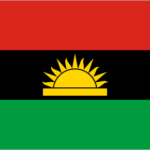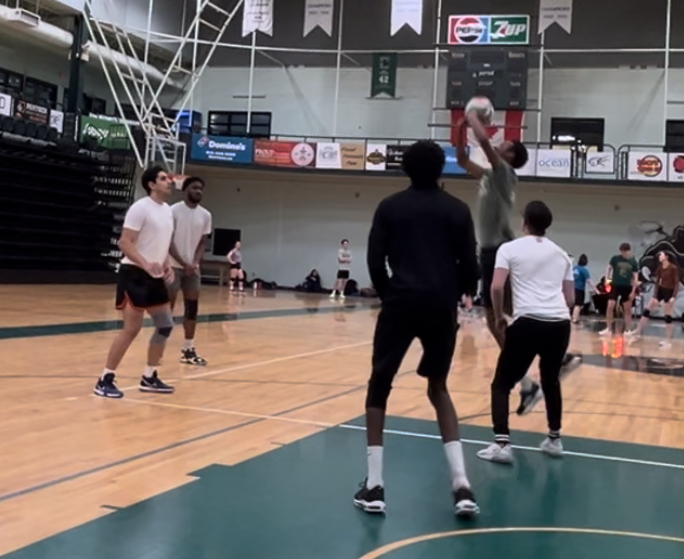By: Elizabeth Iwunwa
My mother was born two months prior to when the war began. It put an abrupt hold on simple village life. This war, also known as the Biafran War, was the Nigerian Civil War. It began on July 6th, 1967, just seven years after Nigeria gained its independence from Britain. As had been done with other African countries, colonial powers carved out an area in the West without regard for religious, linguistic, and ethnic differences. This amalgamation of the northern and southern protectorates happened in 1914. Nigeria at the time had a population of sixty million people with over two hundred distinct ethnic groups.
 It has been said in some quarters, that Nigeria wasn’t ready for independence just yet. There were unresolved ethnic divisions before 1960 and so just mixing groups of people together in hopes that they would eventually figure things out, did nothing to change the situation. Because most people could only really relate to their ethnic origins, a shared sense of identity took long to form.
 The war began with a coup and a secession.  Nigeria was divided along ethnic lines which placed the Yoruba in the southwest, the Hausa and Fulani in the north, and the Ijaws and Igbos in the southeast. Although it is unclear what provoked the coup, it occurred on the fifth of January in 1966, when revolting soldiers killed thirty political leaders. Casualties included the Prime Minister,  Abubakar Tafawa Balewa and the Northern Premier, Ahmadu Bello. A member of the eastern region Chukwuma Nzeogwu led the coup. During evaluation, there were claims that the coup was not political but ethnic. This was further compounded by the fact that no person of Igbo origin, including the president and the premier of the southeast region was killed.
 A counter coup, staged by northern officers and army units, made the ethnic tensions grow worse. By September 1966, about thirty thousand Igbos in the north had been killed. There was retaliation in the eastern cities as well. Despite the Aburi Accord which was formed in January 1967, the federal and eastern governments could not find common ground. By May of that same year, the eastern region voted to secede from Nigeria and Chukwuemeka Odumegwu Ojukwu now deceased, the southeast region’s military governor, announced the creation of the Republic of Biafra. Oil was, and still is a major component of the Nigerian economy. The twist here, is that it is located in the south and the southeast. This became a major bone of contention when the war broke out.

 Biafran soldiers, numbering about three thousand, fought on eastern soil. At the end of the war, they totalled roughly thirty thousand as many had joined in the fight. Nigeria had the upper hand as it was Britain’s newborn. It supported Nigeria with ammunition and strategy. Although the United States formally cited neutrality in civil wars, it was looking to protect investments in Lagos totalling about eight hundred million dollars, and backed the Nigerian side. The Soviet Union, citing similarities with Congo, also supported Nigeria. The federal government engaged in blockades of food and more importantly, oil. Whenever they got into eastern territories, the troops shot at anything that moved. Famine became a weapon as suggested by leaders of the Nigerian government.
There was great scarcity of food and medicine throughout Biafra which led to kwashiorkor in children. There were also tales of betrayal as midwesterners gave up their Igbo counterparts to be killed by the Nigerian troops. Â My father who was just a boy at that time, recounted to me how he ate lizards, crickets and anything that moved except frogs during the war because that was really all there was left. The war took from his childhood. Amongst other things, he still bears a scar he got while trying to get some food at the refugee camp. Although Biafra was backed by France and Egypt, it was outmanned and outgunned. This war once again put Britain and France on opposite sides of conflict.

 Three years and one million casualties later (mainly due to starvation), the war ended. In October 1969, Ojukwu implored the United Nations to moderate a ceasefire. “Operation Tailwind†was the final offensive launched by the Nigerian side on January 7th 1970. Owerri fell on January 9th and Uli followed soon after on the eleventh. Ojukwu had fled to exile a few days earlier to Ivory Coast with immediate members of his family as he was frightened about the possibility of execution after the truce. Philip Effiong, the deputy, handled details of the surrender to General Yakubu Gowon of the federal army on the thirteenth of January 1970. The war ended and Biafra was reabsorbed into Nigeria two days later. Before the war ended, Biafran currency totalling almost a hundred and forty million pounds was in circulation.

 Although this is an indelible part of Nigerian history, some agitations are still present precisely forty six years later. There has been a renewed call for the Republic of Biafra by members of the Movement for the Actualization of Sovereign State of Biafra (MASSOB). There are still dreams of the land of the rising sun. While speaking with my parents as I researched on the war, my father said the movement was a “bloody waste of timeâ€. In his opinion, there are more civil means of dialogue. My mother on the other hand, believes that if these agitations indeed come to fruition, it would be great for the Igbo people. Based on personal experience, even after building a life in the west of Nigeria, they say that people in general do not completely trust Igbos as they fear that a Biafran agenda may be propagated at the slightest opportunity.
   Post independence, several people are of the opinion that the zoning formula currently employed in Nigeria has been unfair to the Igbos. Zoning was agreed upon as a means of ensuring that every ethnicity is represented in a very complex political atmosphere. Rarely do people vying for public offices run as independent candidates. In 1995, politics in Nigeria evolved into rotating appointments among six geo-political zones. Particularly under the new government, there have been accusations of partiality with federal appointments. The way the system works, the national strength of a geo-political zone is determined by the number of states. With the Igbo states numbering just five compared to the other zones which have six, there is limited representation in the Senate, House of Representatives, and the Federal Executive Council.
 In my opinion, even though the idea of an independent state was lofty, it might have been no different from South Sudan once actualized. South Sudan broke out of Sudan in 2011 and has been embroiled in a civil war for about four years now. The root cause of which is ethnic division and military mutiny. Although Biafra was mostly comprised of Igbo people, there were non-Igbo citizens too. The entire region at that time was under military rule as well. While I hate to predict doom, it seems to me that conflict could easily result. In addition, I have several hesitations with regards to foresight. The Biafran army was outgunned and outnumbered by the Nigerian army in the ratio four to one. Even though Ojukwu was acting out of necessity, goodwill could not fire a gun. I am unsure there was a solid plan in place for resource allocation, resettlement and other issues. It seemed unwise to embark on such venture without counting the cost. I do not in any way seek to discredit either the efforts of people who put their lives on the line, or the over one million people who have died. I wish the war had never happened. A lot of things could have been prevented if each party swallowed their pride and hashed out a concrete plan that was fair to all the parties involved.
 Although I wasn’t born at the time of the war, it has cost me. I have no image to two of my grandparents. I also have not seen my parents’ baby photographs. While fleeing during the war, the last thing on one’s mind usually was not preserving photos for posterity, it was staying alive until the next minute. As fickle and inconsequential as these things might be, they are things that I’ll never have. My parents say that during the war, friends and loved ones who became separated by death or distance had no time to mourn because they had to keep running and hiding. Those calling for separation at all costs particularly in these times, must realize that there are better ways of handling these issues. For instance, out-migration from the southeastern states is on the rise. I don’t see why factories and seaports cannot be built as a means of generating employment and growing the economy. Breaking away does not mean that these problems will go away. I love being Igbo just as much as I love being Nigerian but on some days, I fear that I’ll have no home to go back to.









